Seungjoo Lee
(FL)$^2$: Overcoming Few Labels in Federated Semi-Supervised Learning
Oct 31, 2024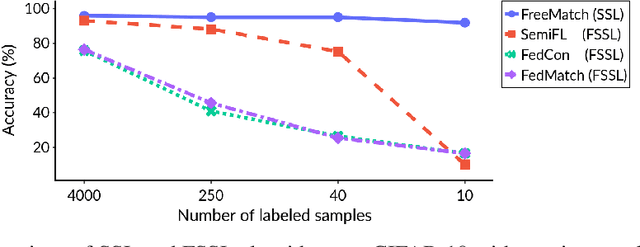
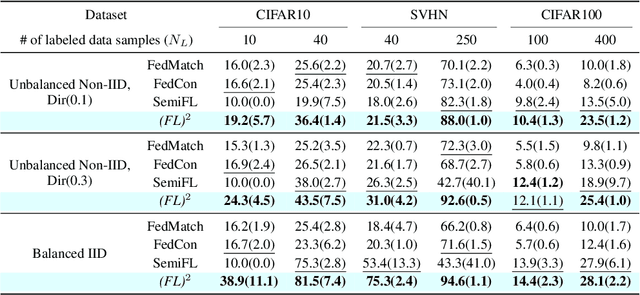
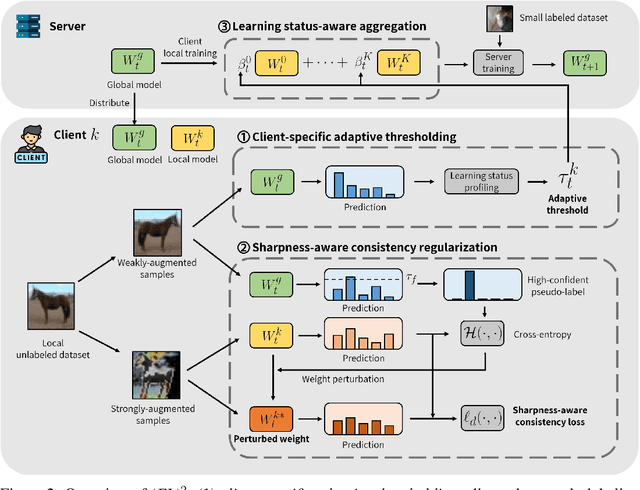
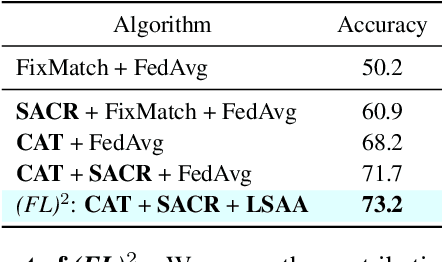
Abstract:Federated Learning (FL) is a distributed machine learning framework that trains accurate global models while preserving clients' privacy-sensitive data. However, most FL approaches assume that clients possess labeled data, which is often not the case in practice. Federated Semi-Supervised Learning (FSSL) addresses this label deficiency problem, targeting situations where only the server has a small amount of labeled data while clients do not. However, a significant performance gap exists between Centralized Semi-Supervised Learning (SSL) and FSSL. This gap arises from confirmation bias, which is more pronounced in FSSL due to multiple local training epochs and the separation of labeled and unlabeled data. We propose $(FL)^2$, a robust training method for unlabeled clients using sharpness-aware consistency regularization. We show that regularizing the original pseudo-labeling loss is suboptimal, and hence we carefully select unlabeled samples for regularization. We further introduce client-specific adaptive thresholding and learning status-aware aggregation to adjust the training process based on the learning progress of each client. Our experiments on three benchmark datasets demonstrate that our approach significantly improves performance and bridges the gap with SSL, particularly in scenarios with scarce labeled data.
FedTherapist: Mental Health Monitoring with User-Generated Linguistic Expressions on Smartphones via Federated Learning
Oct 25, 2023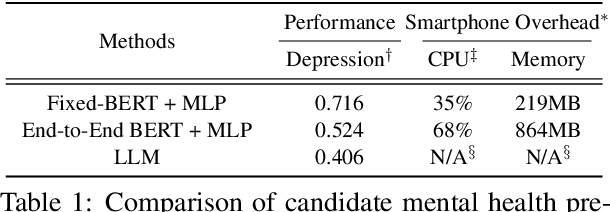
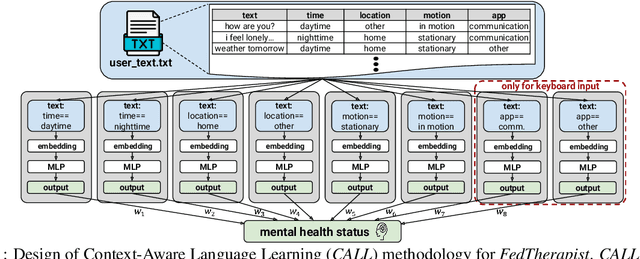

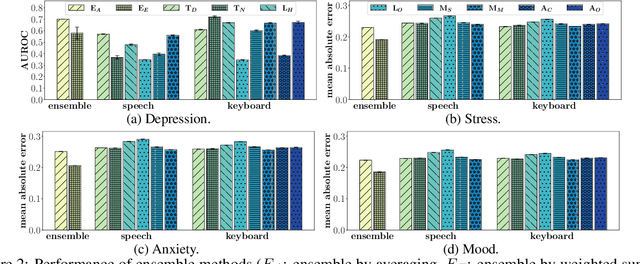
Abstract:Psychiatrists diagnose mental disorders via the linguistic use of patients. Still, due to data privacy, existing passive mental health monitoring systems use alternative features such as activity, app usage, and location via mobile devices. We propose FedTherapist, a mobile mental health monitoring system that utilizes continuous speech and keyboard input in a privacy-preserving way via federated learning. We explore multiple model designs by comparing their performance and overhead for FedTherapist to overcome the complex nature of on-device language model training on smartphones. We further propose a Context-Aware Language Learning (CALL) methodology to effectively utilize smartphones' large and noisy text for mental health signal sensing. Our IRB-approved evaluation of the prediction of self-reported depression, stress, anxiety, and mood from 46 participants shows higher accuracy of FedTherapist compared with the performance with non-language features, achieving 0.15 AUROC improvement and 8.21% MAE reduction.
 Add to Chrome
Add to Chrome Add to Firefox
Add to Firefox Add to Edge
Add to Edge